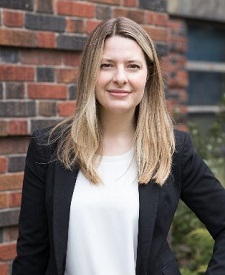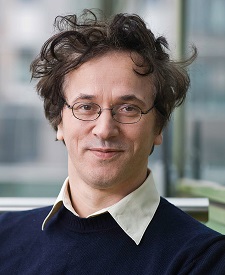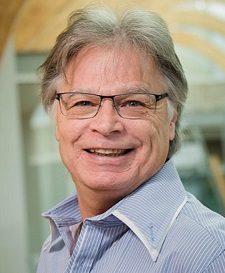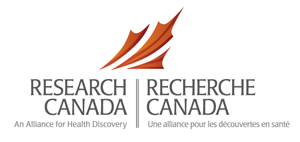Virtual Panel: COVID-19 Vaccine and Treatment R&D in Canada

A Race Against the Clock: COVID-19 Vaccine and Treatment R&D in Canada
The outbreak of COVID-19 evolves quickly and protecting the health of Canadians is the priority of Canada’s health research and health innovation communities. While there are no therapies available for either the prevention or treatment of COVID-19, Canadians are extremely fortunate to have some of the best, brightest and dedicated health researchers, including virologists, vaccinologists and infectious disease experts as well as vaccine developers and manufacturers to help expedite the development and availability of medical products such as vaccines, antibodies, and drugs to prevent and treat COVID-19.
In the first of the series of Research Canada’s Virtual Expert Panels, A Race Against the Clock: COVID-19 Vaccine and Treatment R&D in Canada we will feature four of Canada’s top health researchers who are working tirelessly to understand and treat this disease, contributing to the global effort to ultimately defeat COVID-19.
Introduction by Ms. Deborah Gordon-El-Bihbety, President and CEO, Research Canada
Panelists:
PANEL MODERATOR:
Robert McMaster, PhD
Vice President Research, Vancouver Coastal Health
Executive Director, Vancouver Coastal Health Research Institute
Executive Associate Dean Research, Faculty of Medicine, University of British Columbia
Chair of Research Canada
Dr. Robert McMaster received a Bachelor and Master of Science from the University of British Columbia (UBC) that was followed by a D.Phil. from the University of Oxford. His research interests are in the areas of molecular immunology, parasitology and transplant immunology He is actively involved with national and international granting agencies including the World Health Organization, Canadian Institutes of Health Research where he serves as a Member on the National Advisory Committee for Strategies on Patient Oriented Research, and the Michael Smith Foundation for Health Research, having served as Chair of the Research Advisory Council. Dr. McMaster is a Professor in the Department of Medical Genetics and was Head of the Department from 2000-2010. Dr. McMaster also held the positions as Director of the Immunity and Infection Research Centre at Vancouver Coastal Health Research Institute (VCHRI) and Director of Transplant Immunology for British Columbia Transplant. He was appointed the Vice President Research Vancouver Coastal Health, Executive Director, Vancouver Coastal Health Research Institute, and Associate Dean of Research, Faculty of Medicine, University of British Columbia in 2010 Dr. McMaster held the position of Chair of the Board for BC Clinical Research Infrastructure Network (BCCRIN) 2013-2016. He is a member of the Health Research Council of BC, a member of the Board of Directors of Transplant Research Foundation of BC, a member of the Board of Medical Device Development Centre, a member of the Board of Directors for HealthCareCAN and is the Executive Associate Dean, Research for the Faculty of Medicine of the University of British Columbia. He was appointed the Chair of the Board for Research Canada in June 2017.
 PANELIST:
PANELIST:
Eleanor N. Fish, PhD
Professor, Department of Immunology, University of Toronto
Associate Chair, International Initiatives & Collaborations, University of Toronto
Emerita Scientist, Toronto General Hospital Research Institute, University Health Network.
 PANELIST:
PANELIST:
Alyson Kelvin, PhD
Assistant Professor, Dalhousie University and the Canadian Center for Vaccinology
Visiting Scientist at VIDO-InterVac
Dr. Kelvin is a scientist focusing on emerging viruses and the development of vaccines for these emerging viral threats. Dr. Kelvin wants to know how emerging viruses cause disease in people in order to develop the best vaccines or therapeutics. She holds an Assistant Professorship at Dalhousie University (Halifax, NS) and a Visiting Scientist position at VIDO-InterVac (Saskatoon, SK). Over her career, she has studied several emerging viruses including SARS-CoV, pandemic 2009 H1N1 influenza viruses, avian influenza viruses (H5N1 and H7N9), and now the novel coronavirus SARS-CoV-2. She maintains international collaborations to facilitate the quick transfer of knowledge and reagents around the world during urgent times. Dr. Kelvin is currently an advisor on the World Health Organization’s SARS-CoV-2 preclinical modeling group and her models are being used to evaluate COVID-19 vaccine candidates in Canada.
 PANELIST:
PANELIST:
Josef Penninger, MD
Director, Life Sciences Institute, UBC
Professor, Dept of Medical Genetics, UBC
Canada 150 Research Chair in Functional Genetics
Adjunct Professor, Dept of Immunology, University of Toronto
Dr. Penninger, born in Gurten, Austria, is an Austrian geneticist and the Canada150 Research Chair in Functional Genetics. Dr. Penninger is currently the Director of the Life Sciences Institute (LSI) at the University of British Columbia. He studied medicine at the University of Innsbruck in Austria. From 1990 to 1994 he worked as a post-doctoral fellow at the Ontario Cancer Institute, thereafter until 2002 at the Department of Immunology and Medical Biophysics at the University of Toronto. As Principal Investigator of Amgen, his independent lab contributed to the development of the antibody Denosumab for bone loss and also found the first connection for RANKL to mammary gland development in pregnancy and breast cancer. In 2002, he moved to Vienna, Austria to start and develop the Institute of Molecular Biotechnology of the Austrian Academy of Sciences (IMBA), which has become one of the prime research centers in the world. Dr. Penninger envisions to recreate this environment at the LSI to nurture and train the best and brightest young minds of UBC scholars. His major accomplishments include pioneering insights into the molecular basis of osteoporosis, breast cancer, and linking ACE2 and SARS or COVID-19-casing Coronavirus infections to lung failure. He has published extensively in several multidisciplinary scientific journals, with over 60 publications in Cell, Nature, and Science. Josef has received numerous awards including the Wittgenstein Prize of the Austrian Federal Government, the Descartes Prize for Research, the Ernst Jung Prize for Medical Excellence, the Innovator Award of the US Department of Defense, and most recently the Austrian Cross of Honor for Science and Art First Class.
 PANELIST:
PANELIST:
Terry Snutch, PhD, FRSC, FCAHS
Professor, Department of Psychiatry, Faculty of Medicine, Department of Zoology, Faculty of Science, and Michael Smith Laboratories, University of British Columbia
Canada Research Chair, Biotechnology and Genomics-Neurobiology
Director, Translational Neuroscience, Djavad Mowafaghian Centre for Brain Health
Dr. Snutch received his doctorate from Simon Fraser University in molecular genetics and carried out postdoctoral research in neurobiology at the California Institute of Technology. He is considered a pioneer in molecular neurobiology, most well-known for his cloning and characterization of voltage-gated calcium channels, a molecularly diverse family of proteins that underlies calcium-dependent signaling responsible for physiological properties ranging from neurotransmitter release to neuronal excitability. Dr. Snutch’s work has also elucidated pharmacological and regulatory aspects of calcium channels, describing how their subtype-specific modulation contributes to processes such as opioid receptor-mediated pain signaling and epileptiform activity. Calcium channels are implicated in a number of human diseases and Dr. Snutch provided new therapeutic targets for migraine, congenital night blindness, stroke, epilepsy, autism, epilepsy, chronic pain and psychotic disorders.
In the early stages of the pandemic, Dr. Snutch realized the need for combining widespread SARS-CoV-2 whole genome sequencing and phylogenetic approaches towards determining the relatedness of virus genomes between and across patient populations. These data would provide essential information for tracking SARS-CoV-2 at the level of community introduction, outbreaks and viral evolution. In this regard, Dr. Snutch initiated a pan-Canadian effort bringing together researchers from coast to coast with the common goal of addressing the COVID-19 pandemic through a national scientific collaboration around viral genome sequencing, data collection/sharing and capacity building. Dr. Snutch’s initiative is now fully integrated with a newly funded Genome Canada program, the Canadian COVID Genomics Network (CanCOGen) wherein Dr. Snutch leads the viral sequencing components.



